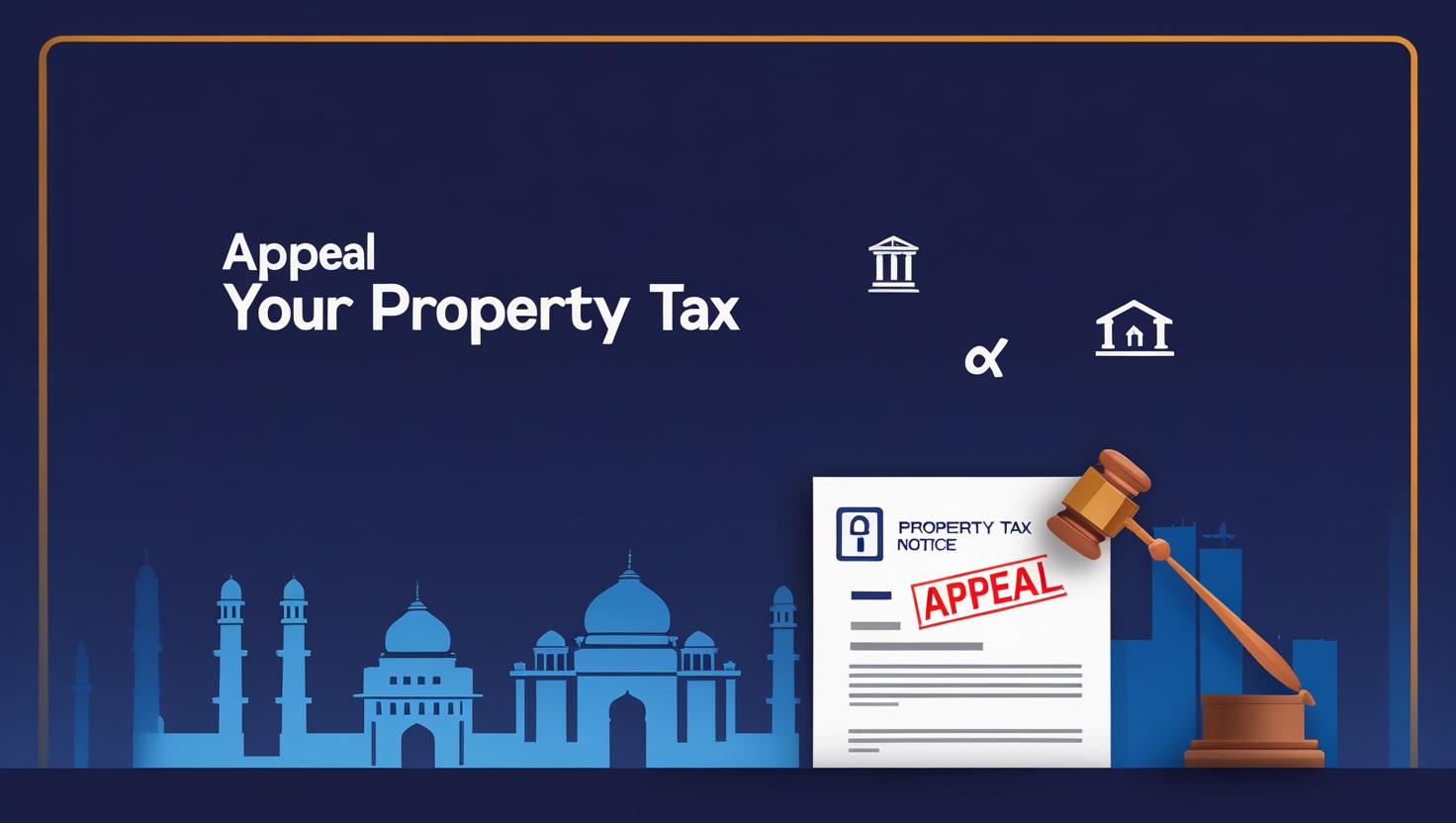Property tax is a crucial source of revenue for the Municipal Corporation of Delhi (MCD), funding essential services like sanitation, roads, education, and hospitals. However, there are instances where property owners might feel that their property tax assessment is higher than it should be. If you believe your property has been overvalued or misclassified, leading to an inflated tax bill, you have the right to appeal the assessment. This guide will walk you through the process of appealing property tax assessments in Delhi, ensuring you understand each step and can navigate the system effectively.
Understanding Property Tax Assessments in Delhi
Before diving into the appeal process, it’s essential to grasp how property tax is assessed in Delhi. The MCD calculates property tax based on the Unit Area Value (UAV) method. This method considers several factors:
- Category of Colony: Delhi’s colonies are categorized from A to H, with ‘A’ being the most upscale areas like Golf Links and Vasant Vihar, and ‘H’ representing less developed areas. Each category has a different UAV, influencing the tax rate.
- Property Type: Residential, commercial, industrial, and institutional properties have varying tax rates.
- Property Size: The total covered area of the property in square meters.
- Age Factor: Newer properties might have different assessments compared to older ones.
- Occupancy Status: Whether the property is self-occupied or rented out can affect the tax amount.
For instance, properties in category ‘A’ colonies have a higher UAV compared to those in category ‘H’. The MCD has revised its tax structure to bring parity between rates following the unification of the three civic bodies. While there are no changes in the tax rates for any residential category, the imposition of a 1% education cess has led to an increase in the payable amount for properties in North and East Delhi.
Source : The Indian Express
Common Reasons for Appealing a Property Tax Assessment
Several scenarios might warrant an appeal:
- Misclassification: Your property is categorized incorrectly, leading to a higher tax rate. For example, a residential property mistakenly classified as commercial.
- Inaccurate Property Details: Errors in the recorded size, age, or occupancy status of your property.
- Discrepancies in Colony Categorization: Your colony is placed in a higher category than it should be, resulting in a higher UAV.
- Recent Changes Not Accounted For: Renovations, demolitions, or changes in property usage that haven’t been updated in the MCD records.
Steps to Appeal Your Property Tax Assessment
- Review Your Property Tax Notice: Carefully examine the assessment notice sent by the MCD. Ensure all details, including property size, type, age, and category, are accurate.
- Gather Supporting Documents: Collect all necessary documents that support your claim. This might include:
- Property Deed: Proof of ownership and property details.
- Previous Tax Receipts: Records of past payments and assessments.
- Building Plans: Official layouts and measurements.
- Photographs: Current images showcasing the property’s condition.
- Any Recent Renovation or Demolition Permits: Documentation of changes made to the property.
- Property Deed: Proof of ownership and property details.
- Compare with Similar Properties: Research assessments of similar properties in your area. If neighbors with comparable properties are taxed less, it strengthens your case.
- File an Appeal with the MCD:
- Obtain the Appeal Form: Visit the official MCD website or the local ward office to get the property tax appeal form.
- Complete the Form: Provide all required details, ensuring accuracy.
- Attach Supporting Documents: Include all evidence gathered to support your claim.
- Submit the Appeal: Hand over the completed form and documents to the designated MCD office. Ensure you get an acknowledgment receipt for your records.
- Obtain the Appeal Form: Visit the official MCD website or the local ward office to get the property tax appeal form.
- Attend the Hearing: The MCD will schedule a hearing to review your appeal. Attend this session, present your case clearly, and answer any questions posed by the officials.
- Await the Decision: After the hearing, the MCD will communicate their decision. If your appeal is successful, the assessment will be adjusted, and future tax bills will reflect the corrected amount.
Tips for a Successful Appeal
- Be Timely: File your appeal within the stipulated period mentioned in your assessment notice. Delays can result in the rejection of your appeal.
- Maintain Professionalism: Approach the process calmly and professionally. Clear communication can significantly impact the outcome.
- Seek Expert Advice: If the process seems daunting, consider consulting a property tax consultant or legal expert familiar with Delhi’s property tax laws.
Recent Developments in Delhi’s Property Tax Regime
Staying updated with the latest changes can provide context to your appeal:
Property Tax Waiver for Rural Residential Areas: As of December 2023, the Municipal Corporation of Delhi (MCD) announced that no property tax will be collected from rural residential areas in Delhi. This decision aims to provide relief to residents who were previously troubled by tax notices. However, property tax will still be collected from designated commercial areas.
Source : The Times of India
SAMRIDDHI 2022-23 Scheme: In October 2022, the Delhi Lieutenant-Governor announced a one-time property tax amnesty scheme. Under this scheme, residential property owners could pay only the principal amount of the current and pending tax of the past five years, with waivers on all pending dues, including penalties and interest.
Source : timesproperty
Revised Tax Structure: The MCD has revised its tax structure to bring parity between rates following the unification of the three civic bodies. While there are no changes in the tax rates for any residential category, the imposition of a 1% education cess has led to an increase in the payable amount for properties in North and East Delhi.
Source : The Times of India
Extended Deadlines and Rebates: The MCD has extended the property tax payment deadline to July 31, 2022. The rebate for advance payment for the fiscal year 2022–2023 has been adjusted to 10%, as opposed to the previous 15%.
Source : timesproperty
Enforcement Rates Revision: The MCD has revised enforcement rates, with composition fees ranging from ₹600 for hawkers and squatters to ₹15,000 for water trolleys. Removal charges vary based on load weight, starting from ₹300 for loads up to 40 kg to ₹2,000 for loads above five quintals.
Source : The Statesman
Conclusion
Appealing a property tax assessment in Delhi requires a clear understanding of the assessment process, meticulous preparation of supporting documents, and adherence to the MCD’s procedures. Staying informed about recent developments and policy changes can provide additional context and support for your appeal. By following the steps outlined in this guide, property owners can navigate the appeal process effectively and ensure that their property tax obligations are fair and accurate.


